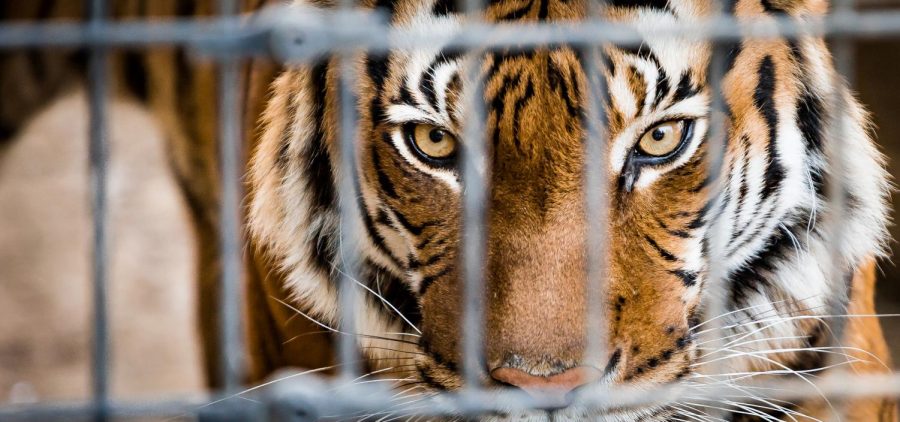Commentary: Don’t let a stop at a roadside zoo spoil your trip
April 1, 2019
You could almost hear the collective facepalms when people learned of the woman who was injured by a jaguar at an Arizona roadside zoo recently after she climbed over a barrier to snap a picture.
But vacationers must have short memories because this kind of bad decision happens all the time. If you’re planning to hit the road soon, there is an easy way to avoid coming home scarred for life: Don’t stop at roadside zoos.
It can be tempting to take a breather by answering the call of interstate billboards, but at hellish roadside zoos, animals suffer and die. Tourists who buy tickets or pay for selfies are what keeps them in business.
Advertisement
These facilities often run on a shoestring budget that makes it nearly impossible to provide the animals with proper care. Many continually churn out baby animals to increase their “inventory” and because babies can be used as photo props. But a few weeks later, after their brief margin of profitability is over, they’ll spend the rest of their lives in cramped, barren cages.
The animals have little, if any, environmental enrichment or anything else to pass the interminable time. If they’re “lucky,” they may be provided with an old car tire, a log or a broken toy. Cages often reek with urine, feces and garbage. Roadside zoos may imprison a handful of animals — or hundreds.
I’ll never forget my own family’s summer road trip through Tennessee. Growing restless in the back seat, my sisters and I nagged our dad to stop and “see the bears” inside a gift shop on the main drag of the Pigeon Forge tourist area.
That stop became part of the family lore — the day our trip ended with three girls bawling their eyes out after seeing sad, listless bears in concrete pits being pelted with food. Decades later, the store still exists and another generation of bears is living in the same squalid conditions. Trust me — do not go in.
Captive bears in the Cherokee area of North Carolina are in similarly abysmal conditions. Two roadside zoos display neurotic, hungry bears in desolate concrete pits or cramped, barren cages in which they pace back and forth, walk in endless circles, cry and whimper, and beg for tourists to toss them a morsel of food. Bears are intelligent, curious and energetic.
They enjoy digging, climbing, constructing cozy nests and searching for treats like berries. But in Cherokee’s zoos, they have absolutely nothing to do but pace or sleep on the concrete floor.
The otherwise glorious destination of Myrtle Beach, South Carolina, is marred by a place that tears baby animals away from their frantic mothers to be used as selfie props.
Advertisement*
Do not be fooled by any claims of altruism — it’s all about the money. At a nearby roadside zoo, visitors report seeing big cats, bears and other animals pacing, swaying and incessantly rolling their heads — all signs of acute psychological distress. Others have said they saw a severely injured llama struggling to walk and a goat who was reportedly urinating blood.
All over the state of Florida, alligators are subject to being “wrestled” by tourists or held up for photos — after their mouths are taped shut.
They are often jammed by the hundreds into fetid pools or used as “decorations” in mini-golf courses, restaurants and souvenir shops. Since cold-blooded species are specifically excluded from protection under the federal Animal Welfare Act, it’s a free-for-all.
Visitors usually leave these kinds of places distraught after seeing despondent, sickly animals pacing, rocking back and forth, gnawing on the bars of their cages or staring blankly into the distance. But by that time, the damage has been done.
Every dollar spent helps keep these tawdry outfits in business. When you hit the road, please don’t visit places where animals will languish in misery long after spring break ends.
Jennifer O’Connor is a senior writer with the PETA Foundation.
Advertisement









